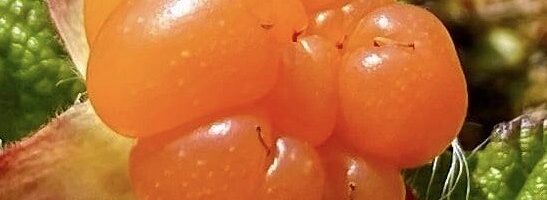This annotated bibliography has been curated by UAF faculty with a goal of sharing resources with colleagues. This resource list is constantly growing and we invite additions. Please use this form to suggest an addition to this list.
- Antoine, A., Mson, R., Mason, R., Palahicky, S. & Rodriquez de France, C. (2018). Pulling Together: A Guide for Curriculum Developers. Victoria, BC: BCcampus. Retrieved from https://opentextbc.ca/indigenizationcurriculumdevelopers/
This guide was developed with teams from post-secondary institutions in British Columbia, Canada. From the manual: “Indigenization is a process in which all members of educational institutions, regardless of their personal or professional background or subject-matter area, should be engaged…As you design, develop, review, and adapt curriculum, you will have opportunities to weave in Indigenous content, perspectives, and educational approaches. This is a critical responsibility, which this guide is intended to help prepare you for.
You will find sections on the need to Indigenize and decolonize curriculum, tips for understanding and developing relationships in Indigenous communities, an overview of Indigenous epistemologies and pedagogies, activities for reflecting on your role, exploring Indigenization on systemic levels.
- Allan, B., Perreault, A., Chenoweth, J., Biin, D., Hobenshield, S., Orminston, T…& Wilson, J. (2018). Pulling Together: A Guide for Teachers and Instructors. Victoria, BC: BCampus. Retrieved from https://opentextbc.ca/indigenizationinstructors/
- McEachern, D. (2016) Adult Learning, Transformative Education, and Indigenous Epistemology. New Directions for Teaching and Learning. 147, 87-196.
This chapter describes an innovative program that weaves together adult learning, transformative education, and Indigenous epistemology in order to prepare Alaskan rural Indigenous social service providers.
- Carlson, D. (2022). Identifying and Lessening Barriers for Alaska Native Students Pursuing a Postsecondary Education: A Guide for Educators [Unpublished master’s thesis]. University of Alaska Fairbanks.
From the abstract: This research project seeks to provide stories from Alaska Native students in regards to their postsecondary education experiences to spread awareness of the unique barriers they endure and to recommend solutions to lessen those barriers…A series of recommendations are included within this document are informed by the researcher’s lived experiences, student stories, and existing research.
- Chung, S., H., S. (2019) The Courage to Be Altered: Indigenist Decolonization for Teachers. New Directions for Teaching and Learning, 157, Spring, 13-25.
This chapter employs autoethnography to reflect upon the intersection of decolonization and Indigenous knowledge. It considers relational engagement with Indigenous people, land, and language, and summarized the practice as “the courage to be altered.”
- Wilson, S. (2001) What is an Indigenous research methodology? Canadian Journal of Native Education. 25(2), 175-179.
From the abstract: “Indigenous researchers must move beyond merely assuming an Indigenous perspective on non-Indigenous research paradigms. An Indigenous paradigm comes from the fundamental belief that knowledge is relational, is shared with all creation, and therefore cannot be owned or discovered. Indigenous research methods should reflect these beliefs and the obligations they imply.”
- Batacharya, S., Wong Y. R. & Ng, R. (2018). Sharing Breath Embodied Learning and Decolonization. Edmonton, AB: AU Press
From the book intro: “This volume considers embodiment and embodied learning in relationship to pedagogical and decolonization theories and practices. Writing from a variety of experiential standpoints, the contributors participate in an ongoing critique of Western liberal education and colonialism by investigating how to develop and use embodied and decolonizing ways of learning and teaching.”
- Ragoonaden, K. (2017). Culturally responsive pedagogy: Indigenizing curriculum. Canadian Journal of Higher Education, 47(2), 22-46.
From the abstract: “This article examines the impact of culturally responsive pedagogy in an introduction to university course developed in collaboration with local and place-based First Nations communities…the content of EDUC 104…was adapted to incorporate Indigenous tradition of teaching and learning.” The author outlines three key themes in her findings: the importance of circles of learning, peer mentoring, and the relationship with the instructor all from the perspective of the students interviewed.
- Louie, W. D., Pratt, P. Y., Hanson, J. A., Ottmann, J., (2017). Decolonizing methodologies in university classrooms. Canadian Journal of Higher Education, 47(3), 16-33.
From the abstract: “This case study examines ongoing work to Indigenize education programs at one Canadian university…we argue that institutions of higher learning need to move away from the myopic lens used to view education and implement Indigenizing strategies…four Indigenous faculty members document effective decolonizing practices for classroom experience, interaction, and learning that reflect Indigenous values…”
- Yeo, M., Haggarty, L., Wida, W. (Thomas Snow), Ayoungman, K., Pearl, M. L. C., Stogre, T., Waldie, A. (2019). Unsettling faculty minds: A faculty learning community on Indigenization. New Directions for Teaching and Learning, 157
This chapter describes a faculty learning community formed at a Canadian university, in partnership with local Indigenous communities, as partr of a response to Canada’s Truth and Reconciliation Commission Calls to Action. Participants were interviewed about their experiences in this group, including their challenges and transformations.
- Wilson, J., Nelson-Moody, A (Tawx’sin Yexwulla). (2019). Looking back to the Potlatch as a guide to truth, reconciliation, and transformative learning. New Direction for Teaching and Learning, 157, 43-57.
This chapter describes the potlatch as a methodology to engage culturally diverse classrooms in liberation curriculum. The Potlatch is a high-context, community-based, participatory method offering three intra/interpersonal reflexive waypoints teachers can use when designing and delivering transformative learning.
- Vaudrin-Charette, J. (2019). Melting the cultural iceberg in indigenizing higher education: Shifts to accountability in times of reconciliation. New Directions for Teaching and Learning, 157, 105-118.
In this chapter, the author draws on personal experiences as pedagogical advisor and as a doctoral student, to consider how recognizing voice, family, and vulnerabilities may assist in developing a sense of accountability in academia. Reflecting on the Canadian context of reconciliation, the author considers how moving from an intercultural to an equity paradigm may melt the cultural iceberg.
- Tynan, L. (2021). What is relationality? Indigenous knowledges, practices and responsibilities with kin. Cultural Geographies, 28(4), 597-610.
From the abstract: “This paper delves into the concept of relationality and pairs academic literature with stories and lesson from Country…(Considering) Indigenous scholarship on relationality, the paper describes three main ideas: (1) How does relational reality operate? (2) Relationality as a living practice and, (3) Relationality as responsibilities with kin…The paper concludes with prompts for the reader on how research can be a more relational process. - TallBear, K. (2019). Caretaking relations, not American dreaming. Kalfou, 6(1) 24-41.


